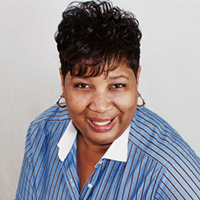Quitman Divorce & Family Law Lawyer, Georgia
Sponsored Law Firm
-
 x
x

Click For More Info:
-
The McReynolds Law Firm, PC
3799 Main Street #87012 College Park, GA 30337» view mapCriminal Defense Defending Your Rights
Let The McReynolds Law Firm, PC handle all your criminal defense needs.
800-919-4121
Jim T. Bennett
✓ VERIFIEDAccident & Injury, Criminal, Divorce & Family Law, Estate, Real Estate
Making Excellence A Standard For Three Generations
Jim T. Bennett has been a member of the State Bar of Georgia since 1998. Jim graduated in the top ten of his class from the Walter F. George School o... (more)
Karla L. Walker
✓ VERIFIEDCriminal, Divorce & Family Law, Accident & Injury, Workers' Compensation, Employment
Karla Walker is part of a team of progressive and aggressive attorneys in South Georgia at the law firm of Copeland, Haugabrook & Walker. Born and r... (more)
FREE CONSULTATION
CONTACTJudge William Robert Folsom
Social Security, Child Custody, Criminal
Status: In Good Standing Licensed: 37 Years
Jennifer Williams
Workers' Compensation, Adoption, Divorce & Family Law, Accident & Injury, Criminal
Status: In Good Standing
FREE CONSULTATION
CONTACTRoger James Dodd
Mass Torts, Family Law, Criminal, Disability, Personal Injury
Status: In Good Standing Licensed: 48 Years
George T. Talley
State & Local Agencies, Workers' Compensation, Employment, Divorce & Family Law
Status: In Good Standing
Katherine Anne Gonos
Traffic, Lawsuit, Wrongful Termination, Family Law, Criminal
Status: In Good Standing
Jacob Efren Montano
Family Law, DUI-DWI, Criminal, Personal Injury
Status: In Good Standing Licensed: 8 Years
 Jule McReynolds College Park, GA
Jule McReynolds College Park, GA AboutThe McReynolds Law Firm, PC
AboutThe McReynolds Law Firm, PC


